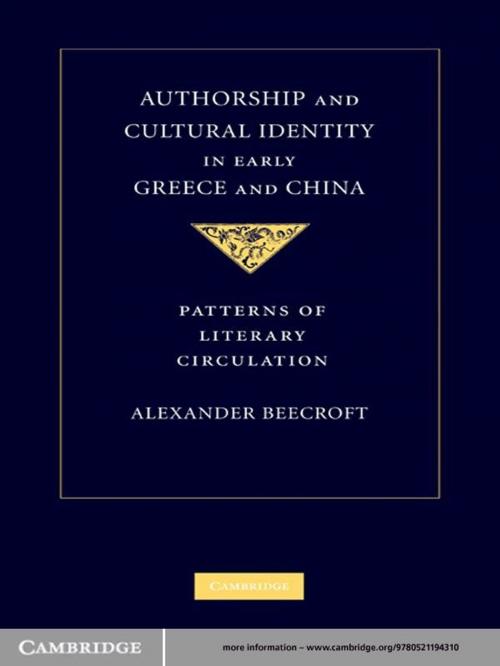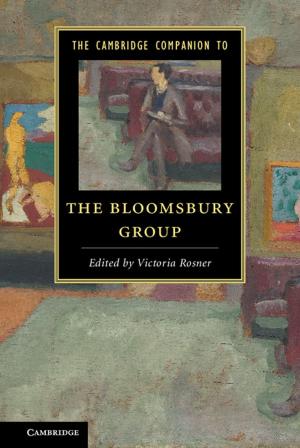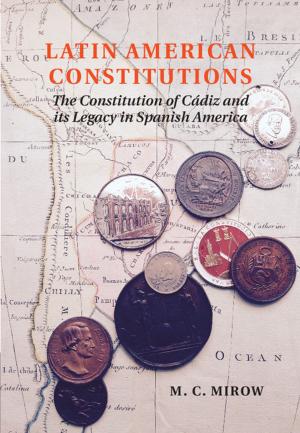Authorship and Cultural Identity in Early Greece and China
Patterns of Literary Circulation
Nonfiction, History, Ancient History, Fiction & Literature, Literary Theory & Criticism| Author: | Dr Alexander Beecroft | ISBN: | 9780511739361 |
| Publisher: | Cambridge University Press | Publication: | January 25, 2010 |
| Imprint: | Cambridge University Press | Language: | English |
| Author: | Dr Alexander Beecroft |
| ISBN: | 9780511739361 |
| Publisher: | Cambridge University Press |
| Publication: | January 25, 2010 |
| Imprint: | Cambridge University Press |
| Language: | English |
In this book, Alexander Beecroft explores how the earliest poetry in Greece (Homeric epic and lyric) and China (the Canon of Songs) evolved from being local, oral, and anonymous to being textualised, interpreted, and circulated over increasingly wider areas. Beecroft re-examines representations of authorship as found in poetic biographies such as Lives of Homer and the Zuozhuan, and in the works of other philosophical and historical authors like Plato, Aristotle, Herodotus, Confucius, and Sima Qian. Many of these anecdotes and narratives have long been rejected as spurious or motivated by naïve biographical criticism. Beecroft argues that these texts effectively negotiated the tensions between local and pan-cultural audiences. The figure of the author thus served as a catalyst to a sense of shared cultural identity in both the Greek and Chinese worlds. It also facilitated the emergence of both cultures as the bases for cosmopolitan world orders.
In this book, Alexander Beecroft explores how the earliest poetry in Greece (Homeric epic and lyric) and China (the Canon of Songs) evolved from being local, oral, and anonymous to being textualised, interpreted, and circulated over increasingly wider areas. Beecroft re-examines representations of authorship as found in poetic biographies such as Lives of Homer and the Zuozhuan, and in the works of other philosophical and historical authors like Plato, Aristotle, Herodotus, Confucius, and Sima Qian. Many of these anecdotes and narratives have long been rejected as spurious or motivated by naïve biographical criticism. Beecroft argues that these texts effectively negotiated the tensions between local and pan-cultural audiences. The figure of the author thus served as a catalyst to a sense of shared cultural identity in both the Greek and Chinese worlds. It also facilitated the emergence of both cultures as the bases for cosmopolitan world orders.















